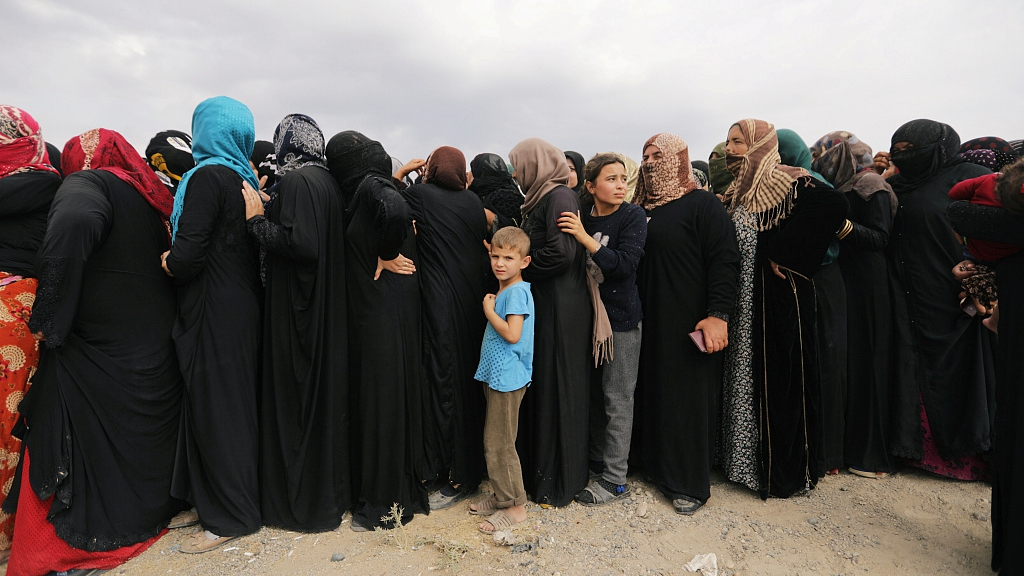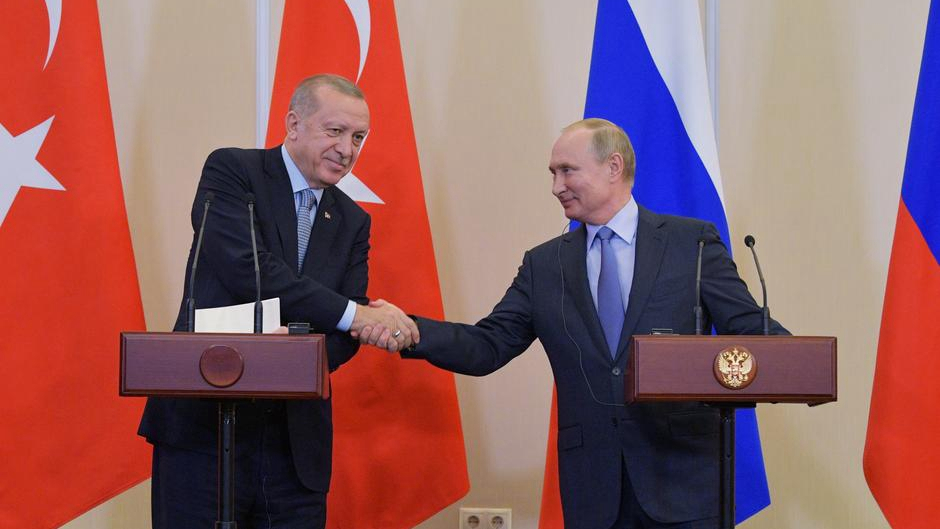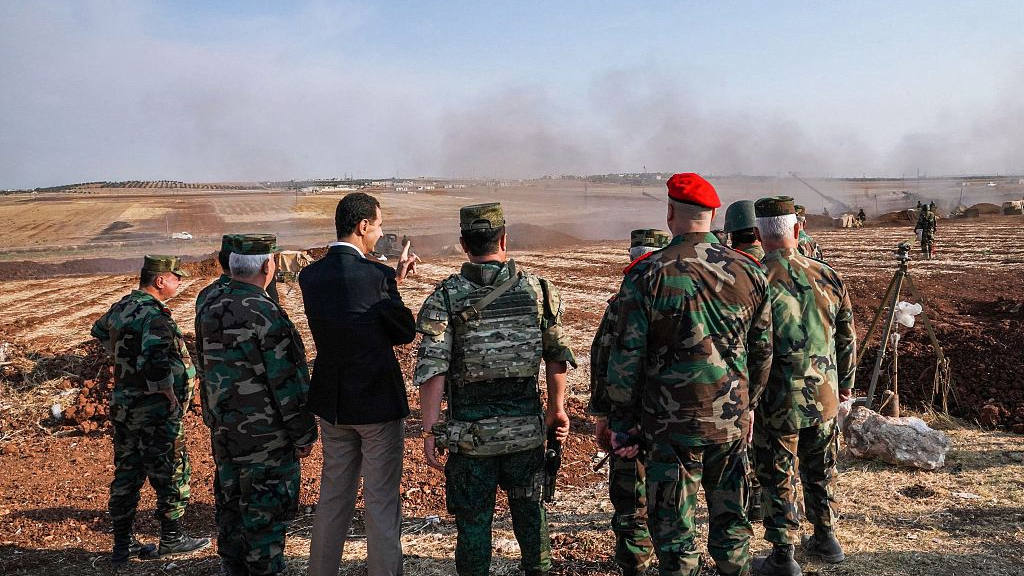
European Union lawmakers on Wednesday condemned Turkey's offensive to carve out a "safe zone" in northeast Syria and prepared the way for new EU financial sanctions against Ankara.
EU governments have protested to Ankara over its incursion but are split over how to respond to it. EU lawmakers have no direct say on the bloc's foreign policy decisions but have the power to curb important EU funding to Turkey.
Ankara seeks a "safe zone" along 440 km (275 miles) of border with northeast Syria. It agreed on Tuesday with Russia on steps to remove Kurdish YPG forces 30 km from the border and jointly patrol 10 km of the area, a pact that a senior European diplomat called a "major blow to NATO" coming after a U.S. pull-out that upset the region's military alliance.
The agreement follows a U.S.-brokered truce which expired on Tuesday and underlines the dizzying changes in Syria since U.S. President Donald Trump announced the withdrawal of American troops two weeks ago ahead of Turkey's cross-border offensive against the Kurds.

Russian President Vladimir Putin (R) shakes hands with Turkish President Tayyip Erdogan during a news conference following their talks in Sochi, Russia, October 22, 2019. /Reuters Photo
Russian President Vladimir Putin (R) shakes hands with Turkish President Tayyip Erdogan during a news conference following their talks in Sochi, Russia, October 22, 2019. /Reuters Photo
"We demand that Turkey immediately withdraw from Syria," German centre-right lawmaker Michael Gahler said, speaking on behalf of the largest political grouping in the EU assembly.
A draft resolution that EU legislators will adopt on Thursday and has the backing of all political groups in the assembly urges "appropriate and targeted economic measures against Turkey".
The text, seen by Reuters, "firmly rejects" Turkey's safe zone ambitions and urges sanctions against Turkish officials responsible for alleged human rights abuses in the offensive into the Kurdish-controlled region of north Syria.
As a last-resort sanction, it also urges the suspension of the EU customs union with Ankara, a measure that would hit the 200-billion-euro (222.3 billion U.S. dollars) annual trade between the 28 EU nations and Turkey.
Besides, it also calls for a UN Security Council resolution to set up a north Syria security zone under a United Nations mandate.

Syrian President Bashar al-Assad (3rd-L) speaking with Syrian army officers while observing artillery bombardment at a position in al-Habit on the southern edges of the Idlib province, October 22, 2019. /VCG Photo
Syrian President Bashar al-Assad (3rd-L) speaking with Syrian army officers while observing artillery bombardment at a position in al-Habit on the southern edges of the Idlib province, October 22, 2019. /VCG Photo
Although European lawmakers have no direct say on trade-related sanctions, they wield clout in their ability to, for instance, reduce the nearly 250-million-euro yearly financing given to Ankara as part of its protracted process to become an EU member, an option backed by the centre-right group.
The parliament could also block any new EU funding to help Turkey handle the 3 million Syrian refugees on its territory, many of whom Ankara would like to resettle in the "safe zone."
China insists on political solution
Chinese State Councilor and Foreign Minister Wang Yi Monday reiterated China's position of a political solution to the Syria issue in an interview with AFP, stating that China supports the UN Security Council Resolution 2254, which clearly states that the Syria issue should be "Syrian-led and Syrian-owned."
China has always been opposed to the use of force in other countries, especially those without UN authorization or consent from the parties involved, he said.
With regard to the recent situation in Syria, Wang said, any action taken by the Security Council should be based on consensus and not simply reflect the views of any one country.
"We do not support Turkey's use of force in Syria and hope to adhere to the principle of political settlement. At the same time, we are ready to join hands with all countries, including Turkey, to combat terrorism and to jointly address the risk of terrorist spillover," said the minister.
(With input from Reuters)
(Cover: A boy stands in line as people receive aid donated by the Turkish Red Crescent in the border town of Tal Abyad, Syria October 19, 2019. /VCG Photo)